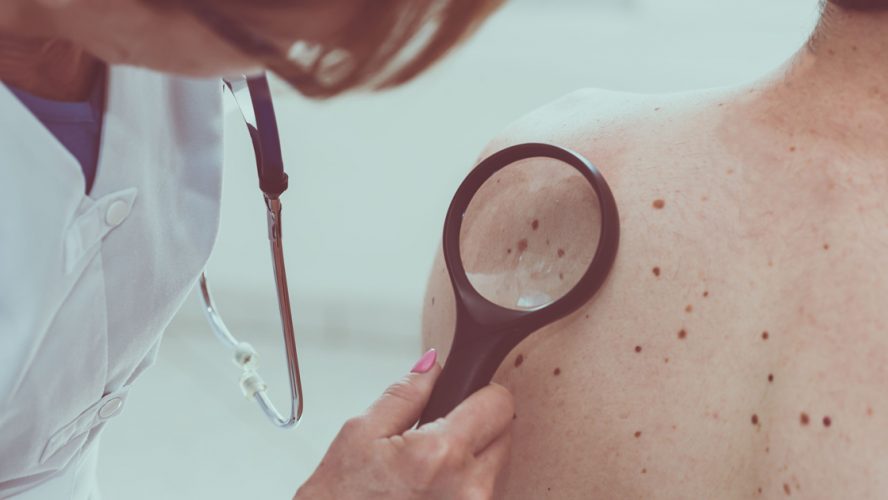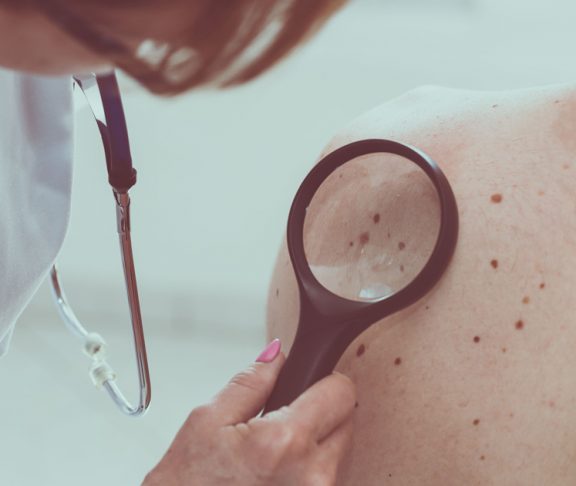
Matthew Patey
CEO, British Skin Foundation
At the British Skin Foundation we know that skin cancer can kill. Worryingly, people assume that suspicious moles can be simply ‘cut out’ of the skin but we know that isn’t always the case.
Incidences of melanoma – the most serious form of skin cancer – have more than doubled since 1995.
Skin cancer is more common in older people with 60% of newly diagnosed skin cancer cases in those over 60 years old. This is likely due to increased sunlight exposure as more UK residents travelled on package holidays abroad during the 1980’s. But it isn’t just older people affected; in 2014 skin cancer was the second most common type of cancer diagnosed for 15 – 49 year olds with men more likely to get skin cancer than women.
Skin cancer is the second most common type of cancer in 15 – 49 year olds.
These shocking stats are the reason it’s important to know your own skin and check it regularly for changes. Check your body every month in front of the bathroom mirror with a partner or family member helping with any hard-to-see areas.
For people considered high risk – those with fair skin, many moles or family history of skin cancer – it’s worth visiting your dermatologist to find out about mole screening. Mole changes can be monitored externally and internally for any signs of changes every 3-6 months by a professional. Prompt diagnosis is essential as most types of skin cancer can be cured if detected early.
How and when to check
Check monthly in front of the mirror with someone helping with hard-to-see areas.
When checking the skin look for moles or patches of skin that are growing, changing shape, developing new colours, becoming inflamed, bleeding, crusting, becoming red around the edges, being particularly itchy or behaving unusually in any way. If in doubt our advice is to get it checked straight away with your GP or dermatologist. For skin cancer support/advice visit www.britishskinfoundation.org.uk/Community.aspx
All stats from Office for National Statistics


